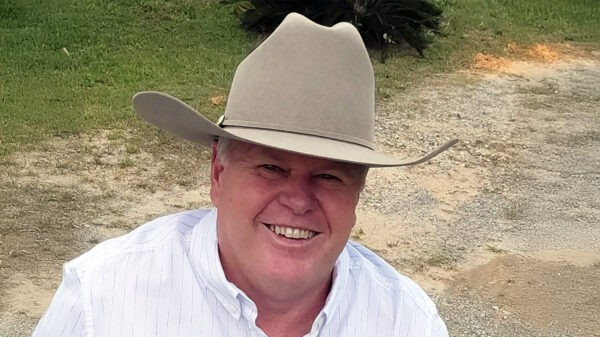By Johnny Kampis
As some are calling for upwards of a trillion dollars in federal spending to help fix the nation’s crumbling infrastructure, a public-private partnership in Alabama is proving that some of those roads and bridges can be improved without using loads of taxpayer dollars.
Officials in Baldwin County recently announced the expansion of the Beach Express, which will add a third lane at the Foley Beach Express bridge that will be reversible depending on traffic needs. The toll road is a partnership between Baldwin County, which includes the beach destinations of Gulf Shores and Orange Beach, and private operator American Roads.
“After Labor Day, we will start construction for the improvements, including adding a third, reversible lane on the bridge to accommodate two lanes of traffic in one direction, as well as widening the toll plaza and part of the southbound Foley Beach Express by the plaza. Electronic trolling will further help by eliminating the need to stop for toll payment,” Neal Belitsky, chief executive officer of American Roads, told local TV station Fox 10.
Two bridges over the Intracoastal Waterway connect the Alabama Gulf Coast to the rest of the state: Highway 59 and the Beach Express. The toll road runs parallel to the highway, with two sections named Baldwin Beach Express and Foley Beach Express. American Roads notes that travelers can avoid more than 25 red lights by taking the expressway between Highway 90 and Interstate 10.
“Save Time. Save Gas,” reads the tagline on the Beach Express website.
The expressway has become a victim of its own success, now experiencing heavy congestion in the summer due to its popularity. About 1,000 cars pass through the toll plaza at the bridge at Foley Beach Express per hour, where lanes are reduced from four to two.
Because the Alabama Gulf Coast continues to see its congestion grow, the Alabama Department of Transportation initially proposed construction of a $30 million taxpayer-funded bridge to alleviate congestion. ALDOT would have done so by dipping into its road repair fund, meaning everyone in Alabama would have paid for the bridge even though a small minority of the state’s residents would ever use it.
Instead, local officials worked with American Roads to expand the Beach Express.
The Foley Beach Express bridge will be restriped to add the extra lane in a $5 million private-investment overhaul that will also see the addition of tag-reader cameras to allow customers to zip through the tolls and be billed later. Officials hope the changes will allow 3,000 cars to move through the plaza per hour.
Tolls are also being reduced through Labor Day for passenger vehicles, from $3.50 to $2.75. Local residents pay $1.25 cash or $1 for electronic payments during that period.
ALDOT spokesman Tony Harris told AL.com he could envision more such projects in the future.
“ALDOT and local governments are struggling to adequately meet the needs posed by maintaining existing roads and bridges and new construction to relieve congestion, so considering toll-funded construction will be essential in the future,” he said.
President Trump’s transportation secretary, Elaine Chao, has voiced strong support for such partnerships as a better way to rebuild the nation’s infrastructure. The national debt of $20 trillion makes a trillion-dollar taxpayer investment hard to swallow, so Chao is hoping private funds can be used to aid in the effort.
Toll roads are among the most effective such partnerships – a private company builds and maintains the road or bridge and recoups the cost of its investment by charging a per-vehicle fee. American Roads has three other such partnerships in Alabama, in Millbrook, Tuscaloosa and Wetumpka.
The arrangement not only reduces congestion on other roads but also allows those who drive on the toll roads – and therefore contribute to their wear and tear – to be directly responsible for paying for their maintenance.
“Public-private partnerships are a very important part of a new way of financing our roads and bridges,” Chao told Fox Business, while also nothing that red tape in some states makes such partnerships tricky.
“The problem is, there is not enough public infrastructure projects ready to be financed because the permitting process takes too long; it takes 16 years to build a bridge, it takes about 16 years to build a road.”
The Trump administration is wise to focus on public-private partnerships to encourage essential infrastructure investment. By looking at what is already working in Alabama and elsewhere, and opening talks with other states to reduce rules and regulations that might impede such partnerships, the federal government can more effectively fix the nation’s ailing roads and bridges.
Johnny Kampis is National Watchdog Reporter for Watchdog.org. Johnny previously worked in the newspaper industry and as a freelance writer, and has been published in The New York Times, Time.com, FoxNews.com and the Atlanta Journal-Constitution. A former semi-professional poker player, he is writing a book documenting the poker scene at the 2016 World Series of Poker, a decade after the peak of the poker boom. Johnny is also a member of Investigative Reporters and Editors.























































